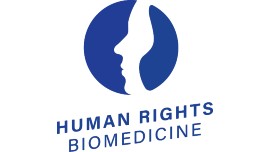On 20-21 October, two-days outgoing training session was organized for the members of Research Ethics Committee under the National Institute of Health of Armenia and Research Ethics Committee under the National Centre for Infectious Diseases of Armenia.
The main purpose of the training session was to strengthen the skills and capacities of the members of Armenian Research Ethics Committees on the key principles and European standards of research ethics committees (REC) enshrined in the Oviedo Convention and its Additional Protocols, as well as based on the Guide for research ethics committee members elaborated by the Council of Europe intergovernmental committee in charge of the protection of human rights in biomedicine.
The training session was opened by Laurence Lwoff, Head of the Human Rights and Biomedicine Division of the Council of Europe, and Diana Andreasyan, the Deputy Director of National Institute of Health of Armenia.
Following the general presentation of the Oviedo Convention and its Additional Protocols and the work of the Council of Europe in the field of healthcare and biomedicine, the participants were introduced to the national and international standards in the field of Research Ethics Committees.
Substantial presentations on national standards in the fields “Research Ethics Committees” and ‘‘Biomedical Research’’ were made by Izabel Abgaryan, the Advisor of the Rector of the Yerevan State Medical University and national consultant of the CoE Project on “Protection of Human Rights in Biomedicine” and Samvel Grigoryan, national consultant of the CoE Project on “Protection of Human Rights in Biomedicine”.
The international standards in the field of Research Ethics committee were carried out by the members of European Network of Research Committees (EUREC).
Prof. Dr. Dirk Lanzerath, Secretary general of EUREC, co-author of the “Guide for research ethics committee members” presented “Networking of RECs in Europe: EUREC as a platform of exchange”;
Dr. Asta Čekanauskaitė, Chair of Lithuanian REC spoke about the “Organisation and Composition of RECs within the European Union: The Example in Lithuania”;
Prof. Dr. Signe Mežinska, representative of Latvian REC addressed the “Review of the application documents: Methods to ensure the competence of researchers, to avoid risks for participants and to increase benefits”; a presentation on “Methodology for risk-benefit analysis: case studies” was made by
Dr. Rien Janssens, representative of a REC in The Netherlands.
The discussion was moderated by Prof. Dr. Eugenijus Gefenas, the Chair of EUREC.
The training session was organized within the framework of the Council of Europe Project on “Protection of Human Rights in Biomedicine” which is implemented within the Council of Europe Action Plan for Armenia 2019-2022











